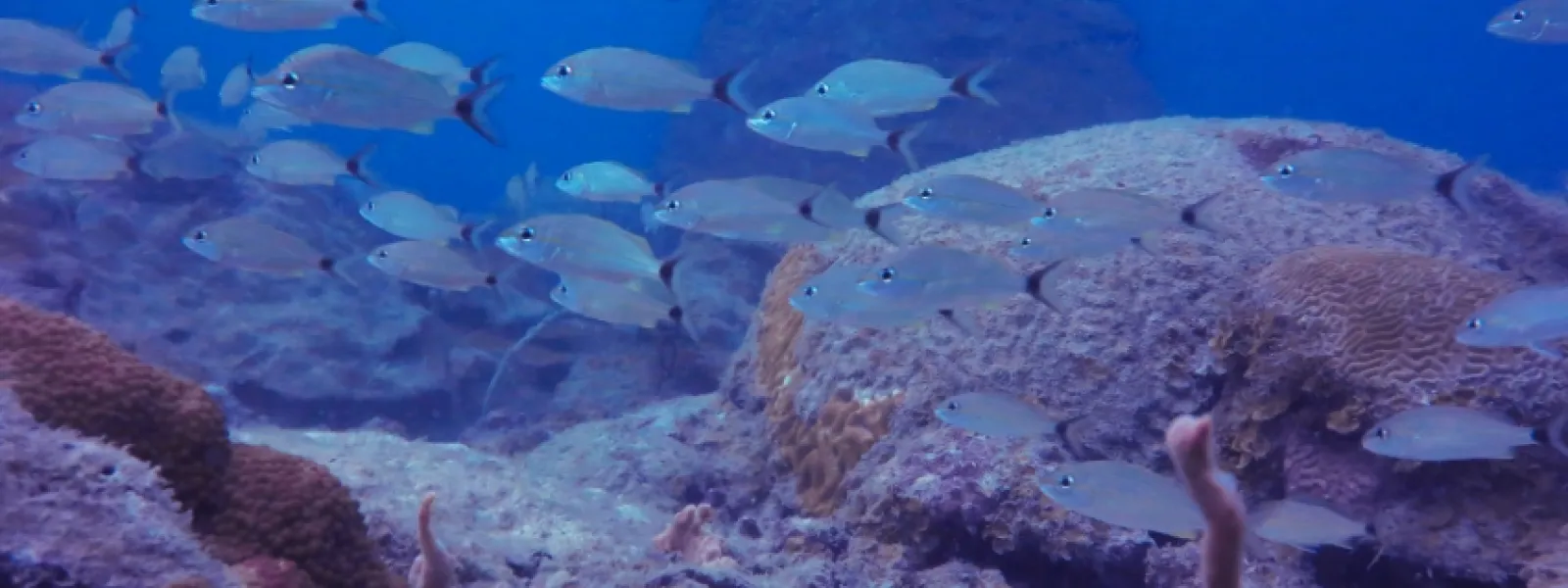
Authorization of port expansion violates Mexico's international commitments
Photo: José Luis Tello.Mexico’s approval of the Port of Veracruz expansion project violates the nation’s international environmental and human rights commitments. To highlight this conflict, AIDA filed an amicus brief supporting residents of Veracruz in their attempt to protect the Veracruz Reef System, currently threatened by the port’s expansion.
Veracruz, Mexico. In support of an amparo filed by local residents against the expansion of the Port of Veracruz, the Interamerican Association for Environmental Defense (AIDA) filed an amicus brief before Mexico’s Fifth Circuit Court with detailed information on international standards and treaties to which Mexico is party, and which the government violated upon authorizing the project.
“By putting at risk the Veracruz Reef System—the largest in the Gulf of Mexico, whose protection is a matter of public interest—the government also threatens the right to a healthy environment of the people who depend on it,” explained Camilo Thompson, AIDA attorney. “The expansion project was authorized without an adequate evaluation of the impacts it would have.”
Mexico granted the project’s environmental permit on November 21, 2013. Just a year earlier, it had reduced the area of the reef system, changing its boundaries to make the project viable. At the time of authorization, adequate scientific information was not available to understand how to avoid damaging the reefs and protect the services they provide to the people of Veracruz. Among their many benefits, the reefs provide income to coastal residents through fishing and tourism, and they act as a natural barrier against storms and hurricanes.
Upholding these ecosystem services, local residents, advised by the Mexican Center for Environmental Law, filed an amparo against the project’s authorization, which was admitted by the court in March 2017.
In their supporting brief, AIDA argues that, in authorizing the project, the government breached international obligations to protect its natural environment and the people that depend on it. Many of those obligations are outlined in treaties to which Mexico is party, including the Convention on Biological Diversity, the Ramsar Convention on Wetlands, the Inter-American Convention for the Protection and Conservation of Sea Turtles, the United Nations Framework Convention on Climate Change, and the American Convention on Human Rights.
The Veracruz Reef System is a Natural Protected Area nationally, and is listed as a Wetland of International Importance under the Ramsar Convention. It serves as a refuge for many marine animals, among them endangered species of sea turtles.
“The reefs of Veracruz contain a rich natural wealth that must be protected,” Thompson said. “The expansion project would destroy part of that habitat and lead to the loss of a great amount of biological diversity. It also could lead to stranded vessels, contaminating spills, and the loss of fishing resources that sustain the local economy.”
Press contact:
Camilo Thompson, AIDA attorney, +521 9671302346, [email protected]
